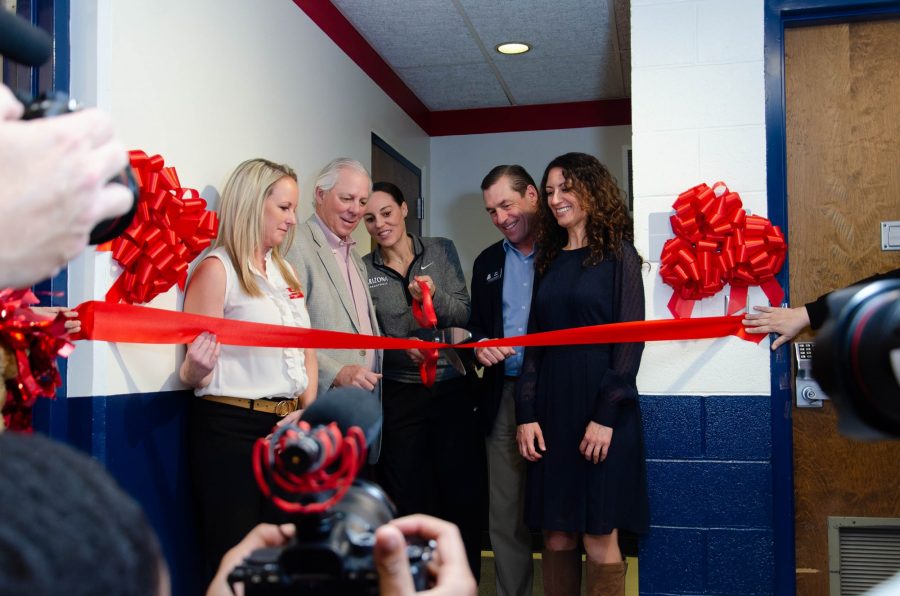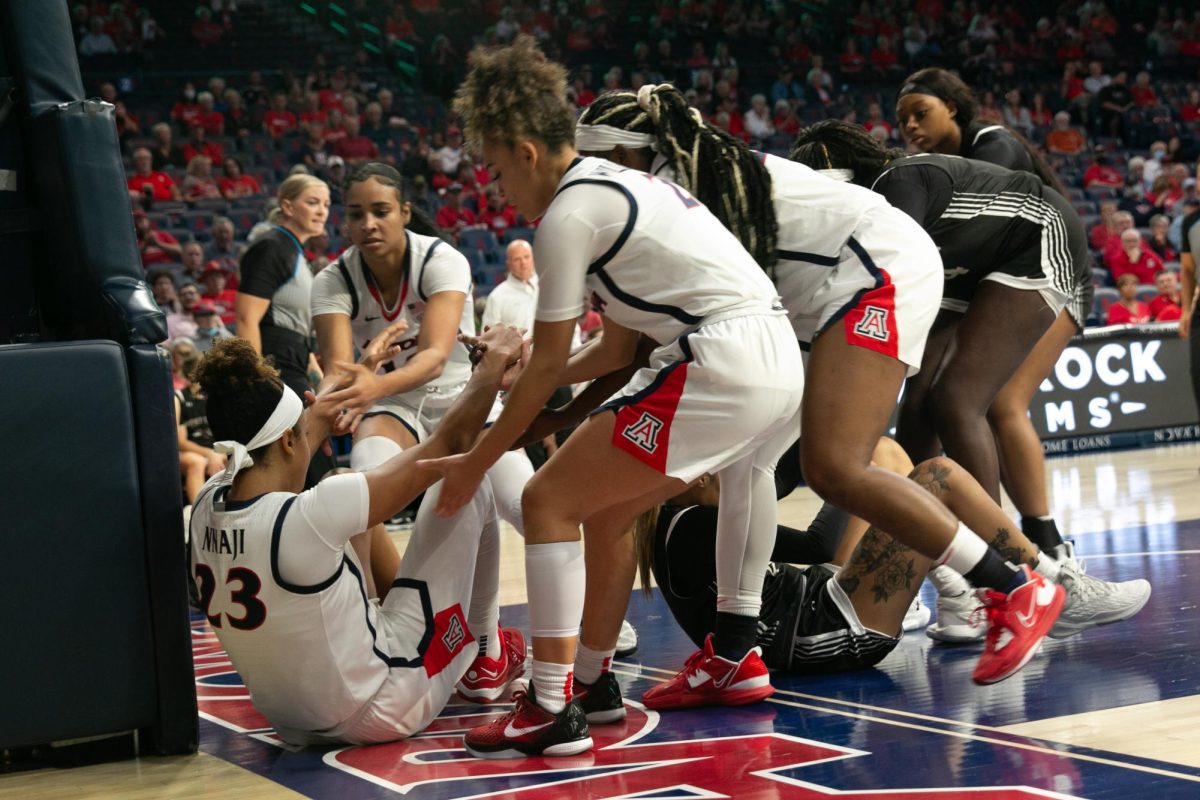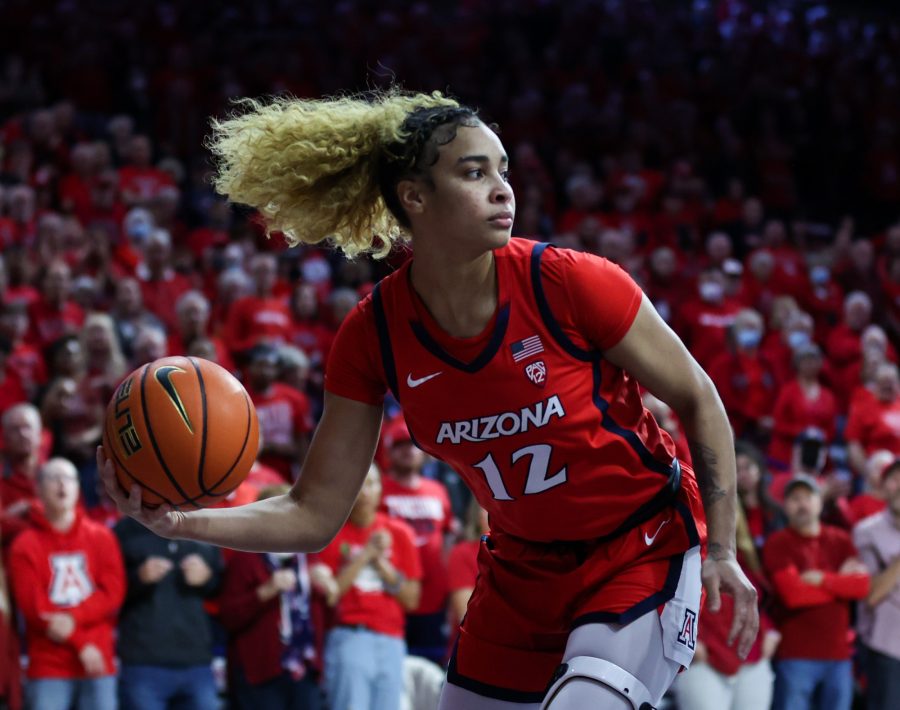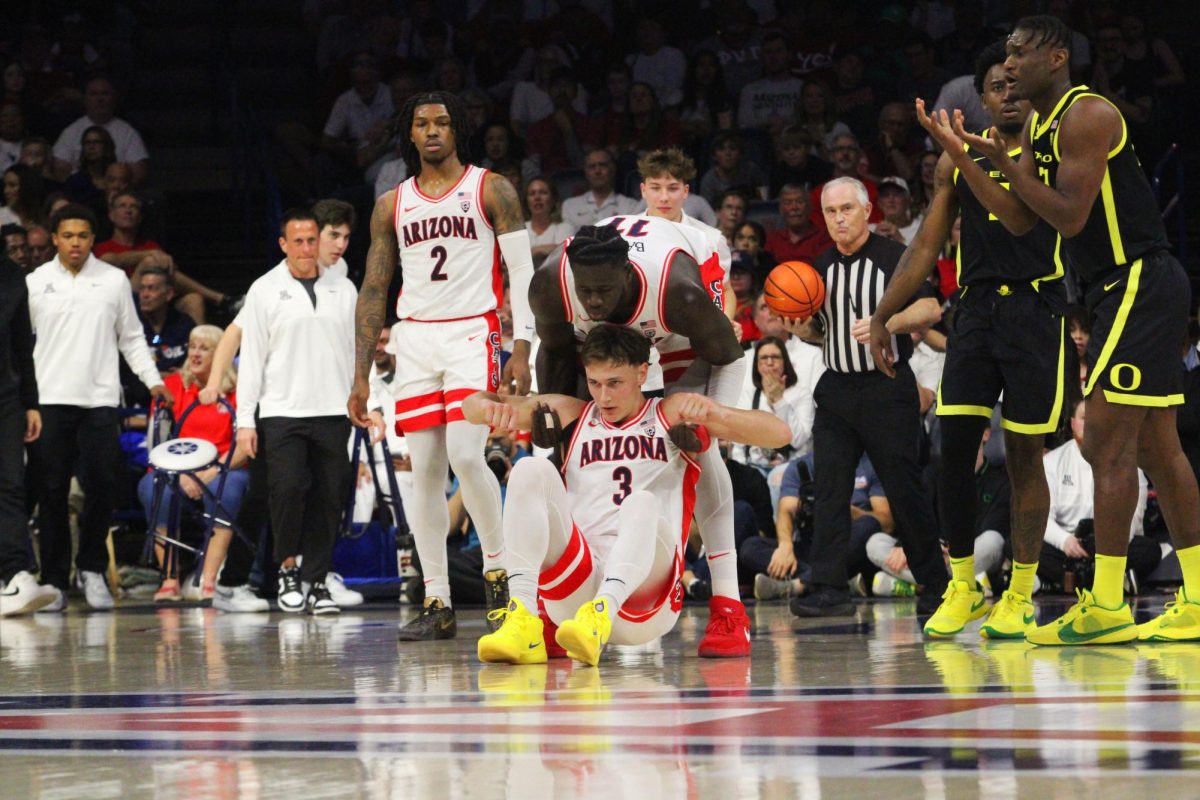Nursing mothers, whether they are basketball fans or staff, now have access to a lactation center in the University of Arizona’s McKale Center.
The facility opened Feb. 7 on the third floor of the sports arena as part of a larger year-old UA Lactation Space Expansion Project initiative to increase the number of lactation centers or Mamava lactation pods — small enclosed rooms that can be freestanding in open spaces — on campus.
Since its launch last January, the UA has finished 12 new lactation spaces and four more are under construction, said Lori Van Buggenum, a project director for University Initiatives.
There are 27 other existing stations around campus according to the UA Family Resource Map, including two in the Student Union Memorial Center.
“I know that we will have five to six families that will use this room as early as tomorrow [Feb. 8],” Krystal Swindlehurst, vice president and chief of staff for Arizona Athletics, said at the Feb. 7 grand opening.
“Coming back to work and making that transition, it’s stressful … and it’s one more thing you have to think about as a full-time mom. And thanks to this initiative that stress level can be relieved,” Swindlehurst said.
Some of the people attending the ribbon cutting ceremony in McKale Center included Arizona women’s basketball head coach Adia Barnes, UA President Dr. Robert C. Robbins and Vice President of University Initiatives Celina Ramirez. This marks the first grand opening for one of the spaces, according to Buggenum.
Barnes spoke about her own personal experiences as a working mother and finding the time to nurse her child. She led the women’s basketball team all the way to the Final Four in 2021 while juggling the contrasting roles of being a nursing mother to her then months-old daughter Capri.
“It’s about time to celebrate women and think of breastfeeding in a positive way,” Barnes said. “You know as women when you don’t have support in things that are hard, it’s really hard to do your job and most women quit their jobs and most women give up their high-level positions because of this.”
There are 101 women on staff for the athletics department at the UA, making up 40% of the workforce, according to Thomas Harris, associate athletic director for diversity, inclusion and employee engagement with Arizona Athletics. Along with these numbers, there are currently six female head coaches in Arizona Athletics versus 10 years ago when there were only two.
The Fair Labor Standards Act states that universities must allow employees ample time for breastfeeding or pumping milk and a lactation space to do so, which can include locker rooms, offices or even library cubicles. Initiatives for the creation of permanent designated lactation spaces allows not only those protected under FLSA to be guaranteed a certain degree of privacy, but also supports students and visitors.
While not everyone chooses to breastfeed their babies, many people still prefer it over alternatives such as formulas.
“I won’t dive too deep into the positive benefits of breastfeeding, but there are antibodies that are transferred in the milk that protect your baby in that early time […] and just the positive experience that you have as a mother,” Robbins said at the McKale ribbon-cutting ceremony.
The Centers for Disease Control and Prevention frequently asked questions page on breastfeeding outlines several benefits to nursing including reduced risk of disease for infants, reduced risk of high blood pressure for mothers and reduced risk of breast or ovarian cancer for mothers.
“This is a life changing thing and it sounds so silly but it truly is, so thank you. I won’t be using it but I’ll be coming by to say hi,” Barnes said.
*El Inde Arizona is a news service of the University of Arizona School of Journalism.
Follow the Daily Wildcat on Twitter















